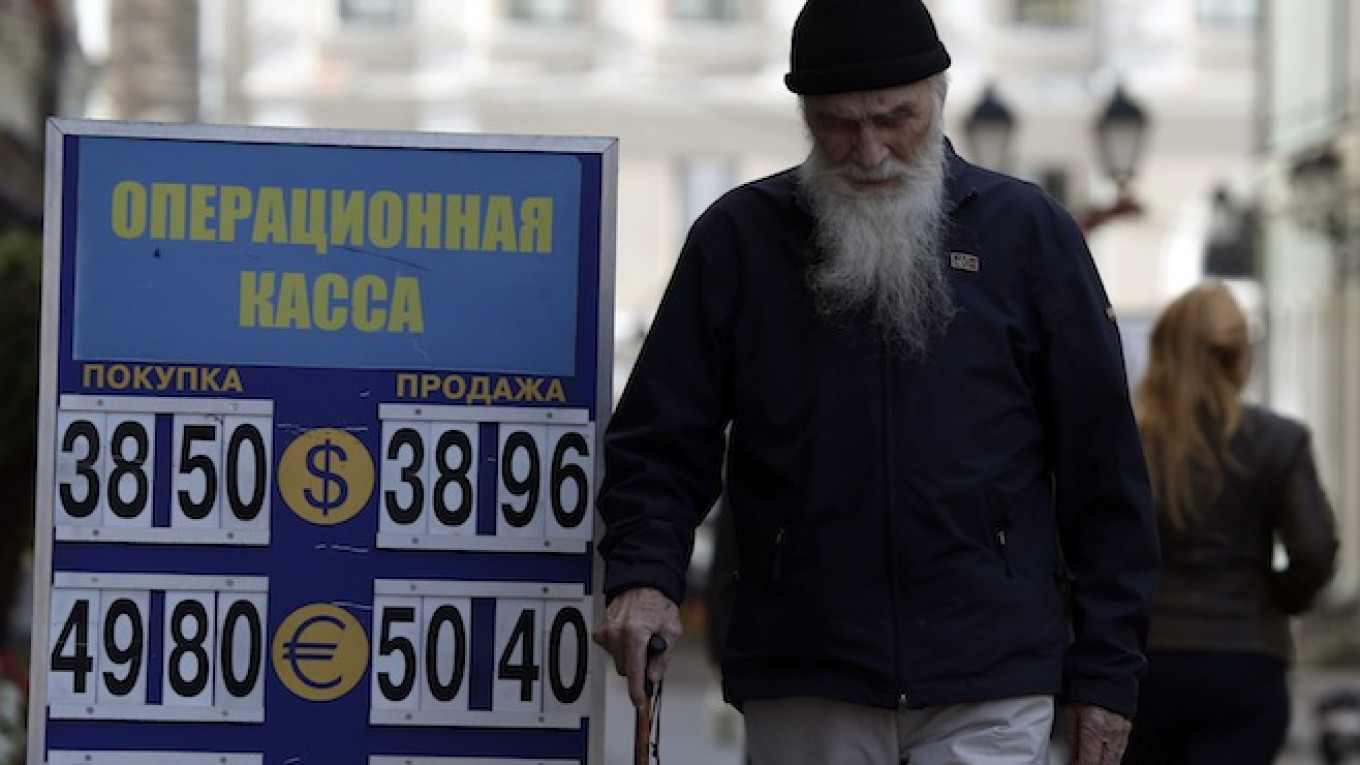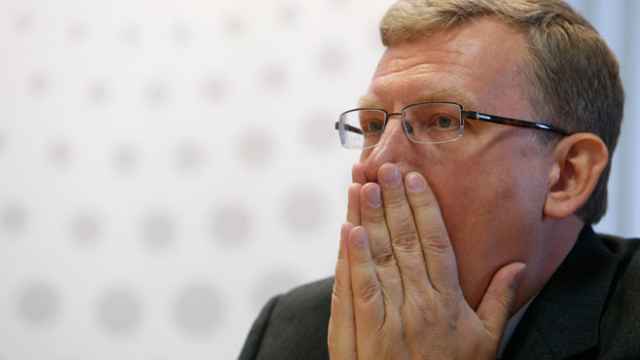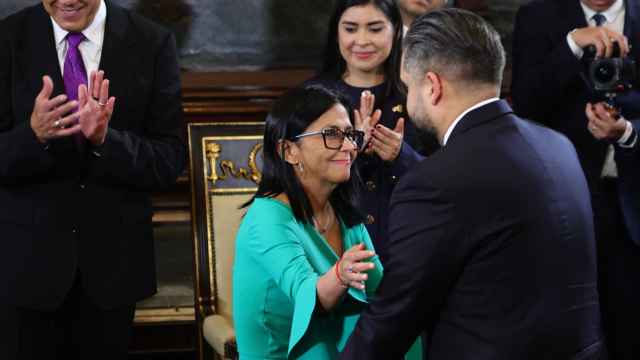Russia's economy is set to stagnate in the next two years as the country pays the price for the Ukraine crisis, lack of structural reforms and uncertain economic policy, the World Bank said Wednesday.
In a much more pessimistic outlook than the Russian government's, the Washington-based lender forecast the economy would grow by just 0.3 percent next year and could contract if the Ukraine crisis escalates.
In 2016, Russian gross domestic product will increase by 0.4 percent, it said. The government estimates growth of 1.2 percent in 2015 and 2 percent in 2016.
"We don't believe that investment growth is picking up as much as the government believes," Birgit Hansl, the World Bank's economist for Russia, told journalists.
"Their assumption is that monopolies will be investing. … We expect less strong investment impulse," she said.
Sanctions imposed by the United States and Europe over Russia's involvement in Ukraine will dampen investment, while consumption growth in coming years — a major driver behind Russia's economy — will be subdued.
"More restricted access for Russian companies and banks to external financing [due to sanctions] is likely to have already affected investment decisions, leading to a delay or a scaling back of investment programs," the World Bank said in its biannual report on Russia.
"We expect that this trend will worsen during the second half 2014 and throughout 2015, when the impact of the additional sanctions will be felt and may lead to a period of near stagnation."
Consumption growth will likely slow to 0.5 percent in 2015 from about 2 percent this year, the bank forecasts.
It expects the economy to grow 0.5 percent this year, in line with the government's forecast, after predicting in March after Russia's annexation of Ukraine's Crimea region, that Russia was at risk of sliding into recession.
"The good news is that Russia did escape recession," Hansl said.
Risky Fiscal Stance
The bank's forecasts assume no new sanctions either on or by Russia over the Ukraine crisis. The bank warned that if the conflict around Ukraine escalates, the economy may contract by 0.9 percent in 2015.
Policy uncertainty and a continuing lack of structural reforms remain the "deciding" factors for the outlook, it said.
"Structural reforms would need to focus on improving economic institutions to ensure that public finances are stable and economic volatility well-managed," the bank said.
"Stabilization, education and competition should be the reform priorities for the next decade."
The bank commended the Central Bank for its perseverance in shifting policy to focus on inflation targeting as of next year and away from controlling the ruble, but it said the Central Bank is in a tough position.
"It might become challenging to operate in an environment that has now both high inflation and low growth risks," the bank said in the report.
It forecasts inflation of 8 percent this year, above the Central Bank's forecast of 7.5 percent.
The bank also warned that Russia's recent decision, pencilled in the budget, to allow taking funds from the two oil windfall funds — the National Welfare Fund and the Reserve Fund — next year if the government needs to support the economy is risky.
"Russia's fiscal position is becoming even more tightly linked to oil revenues and global oil prices," the bank said.
Russia's non-oil deficit is likely to remain persistently high at above 10 percent of GDP, it warned.
"Use of these [the Reserve Fund and the National Welfare Fund] should be prudent," Hansl said.
A Message from The Moscow Times:
Dear readers,
We are facing unprecedented challenges. Russia's Prosecutor General's Office has designated The Moscow Times as an "undesirable" organization, criminalizing our work and putting our staff at risk of prosecution. This follows our earlier unjust labeling as a "foreign agent."
These actions are direct attempts to silence independent journalism in Russia. The authorities claim our work "discredits the decisions of the Russian leadership." We see things differently: we strive to provide accurate, unbiased reporting on Russia.
We, the journalists of The Moscow Times, refuse to be silenced. But to continue our work, we need your help.
Your support, no matter how small, makes a world of difference. If you can, please support us monthly starting from just $2. It's quick to set up, and every contribution makes a significant impact.
By supporting The Moscow Times, you're defending open, independent journalism in the face of repression. Thank you for standing with us.
Remind me later.






